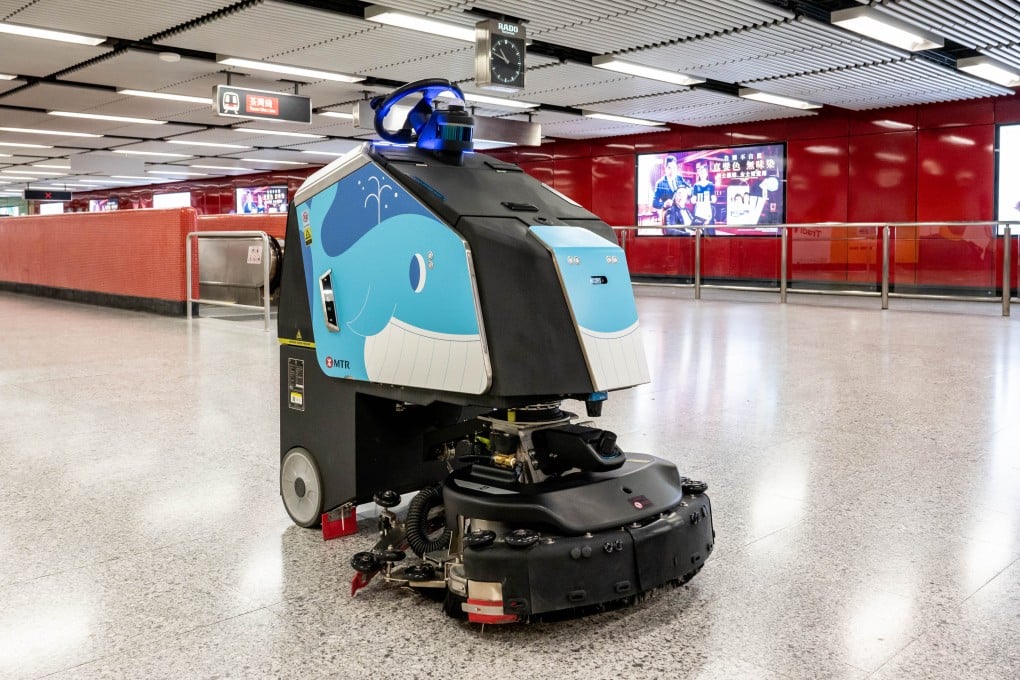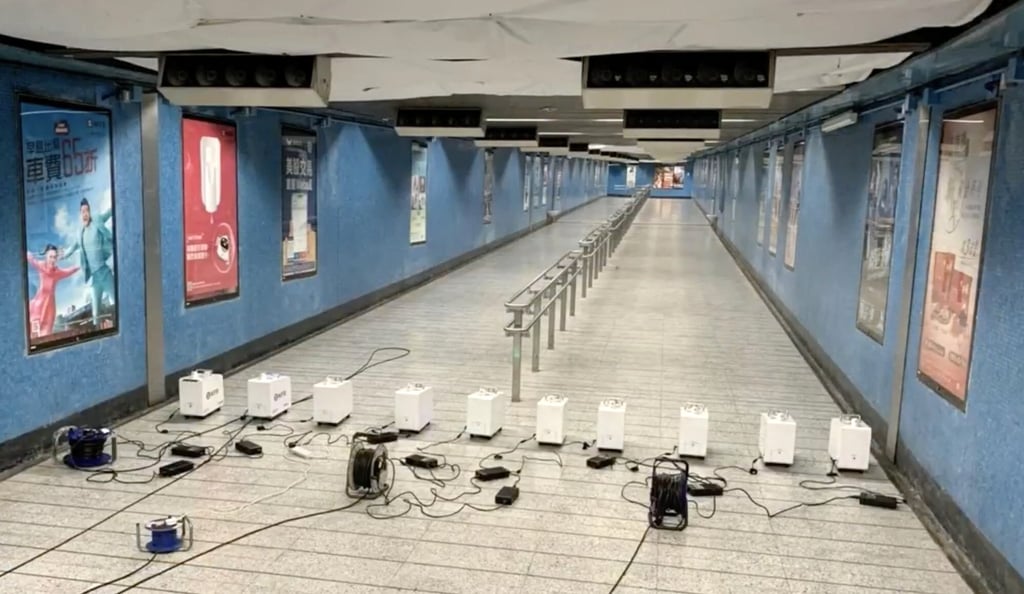Omicron: Hong Kong’s MTR Corp urged to deploy more cleaning robots for disinfection of stations, train compartments
- MTR Corporation sent 10 ‘vaporised hydrogen peroxide’ robots last week to deep clean Mei Foo MTR station, where Omicron transmission took place
- It takes about four hours for such a robot to complete the cleaning of an eight-car train in automatic mode

Hong Kong’s rail operator has been urged to introduce more cleaning robots to strengthen the disinfection of train compartments and stations in the wake of a widening outbreak of the Omicron coronavirus variant.
The call came as the MTR Corporation dispatched 10 robots last week, called “vaporised hydrogen peroxide” (VHP) robots, to deep clean one of its stations overnight after a recent transmission of Omicron took place there.

To ease passengers’ concerns about the infection, the MTR Corp said it had arranged for the robots to conduct deep cleaning at the station.
“The team also cleaned the filters of the air-conditioning system to further enhance hygiene,” it said. “A disinfection robot is currently at work at the station and a number of air purifiers were added to provide a safe and clean station environment to protect everyone’s health.”
The VHP robot is a co-invention from a joint project of MTR and biotechnology firm Avalon Biomedical (Management) Limited. An MTR spokesman said the rail firm had more than 100 of these robots, which cost about HK$200,000 (US$25,690) each.
In general, it takes about four hours to complete the cleaning of an eight-car train in automatic mode.